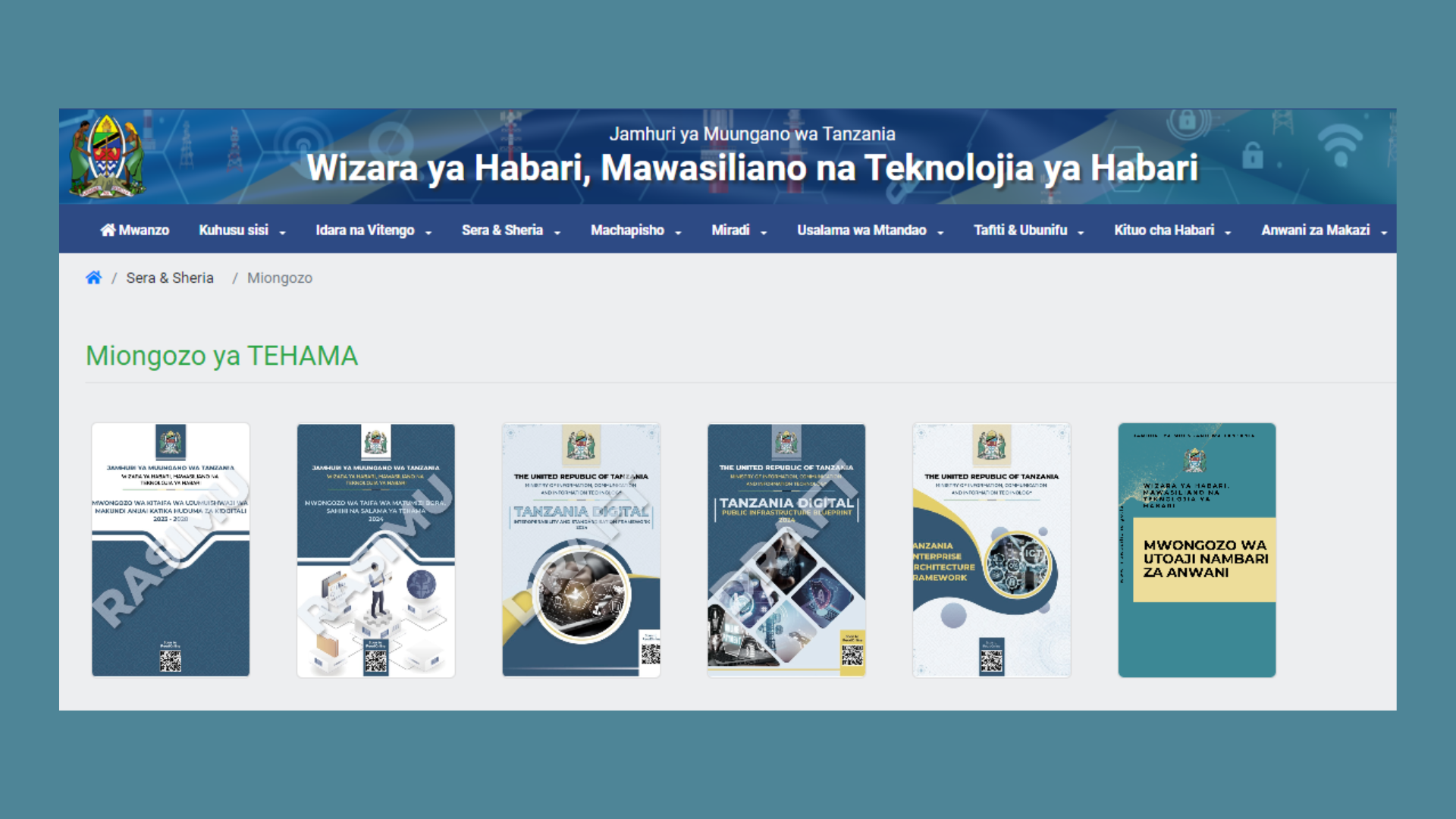Propelling Internet Governance Policy Reforms in Tanzania
On April 9, 2024, the Internet Governance Tanzania Working Group submitted its feedback to the Ministry of Information, Communication, and Information Technology as part of the Civil Society Community’s efforts to contribute to policy reforms in the country. From December 2023 to March 2024, the Ministry released a series of six policies and guidelines to solicit feedback from stakeholders, including the Civil Society Organization (CSO) community. In an era where the Internet and ICT are integral to daily life, these foundational policies are crucial for achieving an effective Digital Tanzania that is inclusive and equitable, leaving no one behind.
The “Internet Governance Tanzania Working Group” is a collaborative platform formed by a diverse range of stakeholders with a shared dedication to tackling governance issues within the Tanzanian context. These issues encompass a broad spectrum, including but not limited to Personal Data Protection, Cyber Security, Content Regulation and Moderation, Emerging Technologies and their implications, Digital Rights, and Freedoms, as well as all related policies within the region. The platform is coordinated by Tech & Media Convergency (TMC) as a means of a collaborative learning and sharing mechanism for all internet governance related aspects.
Feedback on the Policies
The policies were either in Swahili or English language, and not both languages per policy. To engage with and contribute to the five policies (of the ten) recently introduced by the Ministry, the Internet Governance Working Group, consisting of 13 entities (including 4 associations and 9 CSOs), collectively submitted 31 proposals. This collaborative effort aimed to address pressing issues and provide constructive feedback on the policies, underscoring the group’s commitment to enhancing internet governance in Tanzania.
The following are the policies addressed
- Mwongozo wa Kitaifa wa Ujumuishwaji wa Makundi Anuwai katika Huduma za Kidijitali 2023–2028.
- Muongozo wa Taifa wa Matumizi Bora, Sahihi na Salama ya TEHAMA – 2024.
- Mwongozo Mdongo wa Mfumo wa Anwani za Makazi katika Uhakiki wa Taarifa za Anwani na Makazi.
- Tanzania Digital – Interoperability and Standardization Framework 2024.
- Tanzania Digital – Public Infrastructure Blueprint 2024.
- Tanzania Enterprise Architecture Framework.

Some of the Key Contributions Shaping Policy Reform
- The working group emphasized the importance of inclusivity, particularly for people with special needs (“makundi anuai”), by advocating for the intentional inclusion of Assistive Technologies in the policies. This ensures that the needs of individuals with disabilities are addressed and accommodated.
- In addressing Technology-Facilitated Violence, efforts were made to shift the burden of responsibility from victims to perpetrators of Technology-Facilitated Violence. The group pushed for measures to hold perpetrators accountable for their actions, thereby providing greater protection for victims.
- Defining Proper, Effective, and Safe Use, the group advocated for the inclusion of clear definitions of “Matumizi Sahihi” (proper use), “Matumizi Bora” (effective use), and “Matumizi Salama” (safe use) within the policies and national guidelines. This ensures a shared understanding and promotes responsible use of technology.
- In building the roadmap for future trends of the Tanzania Digital Program (TzDP), the working group proposed several components to be considered, including Emerging Technologies, Data Governance & Privacy, Inclusion of Special Groups, and Public-Private Partnerships (PPP). These components are crucial for guiding the development of policies and initiatives to meet evolving technological needs and challenges.
The policies are a step closer to obtaining a safer and more reliable digital world, the Internet being a very important aspect in the growth of every sector including education, agriculture, business, tourism, health (just to mention a few) is a sphere that should be available and safe for everyone to use. As the digital world grows everyday it is of great importance for our laws and regulations to evolve in order to stay relevant and adapt to the growth. For the working group, there are supposed to be more segments in the policies advocating for digital freedom that included promotion of internet accessibility and inclusivity of the entire society in the benefits of the digital world.
The working group comprised of the following;
- Tech & Media Convergency (TMC)
2. Tanzania Internet Service Providers Association (TISPA)
3. Zaina Foundation & the Digital Rights Coalition
4. Tanzania Women Lawyers Association (TAWLA)
5. Internet Society Tanzania Chapter (ISOC-Tz)
6. Digital Agenda for Tanzania Initiative (D4TI)
7. Women in Law & Development in Africa (WiLDAF)
8. Media For Development and Advocacy (MEDEA)
9. Dunia Salama Founation (DUFASO)
10. African Child Projects
11. Gidabuday Sports Tourism Foundation
12. Builders of Future Africa
13. Tanzania Internet Governance Forum
As we move forward, aside from personal data protection and emerging technologies, especially Artificial Intelligence (AI) – it is essential that the principles of digital rights, freedom, and inclusivity remain at the forefront of policy discussions. By fostering collaboration among diverse stakeholders and ensuring that policies reflect the needs of all Tanzanians, we can work towards a future where the benefits of the digital world are accessible to all, leaving no one behind.

